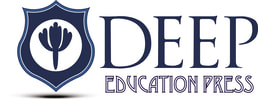From Personal to Policy
|
From Personal to Policy: Multidimensional Perspectives on Technology in Language Education Policy is an edited volume from the Deep Education Press’ line of books on language education policy. It contains rich and interesting studies from around the world on technology in language education policy relating to different linguistic and cultural contexts such as English language education in Hong Kong, studies in heritage language education, video study groups to develop reflective practice in student teachers, shifts in teacher technology use and practice, and technology in self-study and distance education. The technologies studied are as varied as the contexts to which they were applied. Some looked at tools used in formal education such as teacher websites and online learning management systems. Others look at technology that can be applied to education like video. Others looked at newer technologies such as language learning applications for which more and more studies are being conducted. What stands out about this volume is a broadened sense of what constitutes language education policy developed over the course of the book from the seeming banal, daily practices of educators all the way to national policies. |
|
The contributing authors of this book discuss the relationships between the individual (personal) and the general (the policies); in this case, in the field of language education policy. The cases and investigations presented are very important and show us an international panorama of different continents. The chapters dedicated to research in Hong Kong, Australia and Korea are especially interesting for the European and American reader.
- José Gijón Puerta, Professor, University of Granada, Spain As the title indicates, this volume provides a number of different perspectives on technological innovations and various uses of technology in a wide range of contexts. Since the contributors to this volume approach the policies and practices that they explore by relying on different conceptual and theoretical frameworks, readers get a sense of the big picture by seeing how World Language Education is being shaped at the local level by technology. It is reassuring and refreshing to read a volume that does not propose technology as an educational panacea; nonetheless, the studies presented in this volume give readers a sense of the incredible potential for existing and new technologies to help change and improve learning and teaching. - Lawrence Williams, Professor, University of North Texas, USA |
This book goes beyond simply cataloguing the latest technological innovations by investigating the ways in which technology can and does shape language education policy worldwide. Thus, the authors—with broad yet deep scope—demonstrate the dynamic relationship between technology, language, the classroom, and the world. Collectively, the authors argue that technology has the unique potential to develop a deeper understanding of not only what language is, but also how it operates, how it evolves, how it exerts power, and what it can do around the globe. By asking questions like, how technology fosters reflective language education and teacher preparation; how does it support and create stronger linguistic skills; and, how do the specificities of language education influence the locales in which this learning takes place, this collection makes a thrilling and necessary contribution to the field of world language education. The contemporary symbiotic relationship between language and technology, this volume proves, is indeed worthy of further study. - Ryan K. Schroth, Assistant Professor, Wake Forest University, USA |
Dr. Michael K. AllredMichael Kay Allred is a Lecturer of Spanish at Southern Methodist University. Michael Kay Allred graduated from the University of Wisconsin-Madison with a PhD in Curriculum & Instruction specializing in World Language Education. In addition, he earned an MA in French from the University of North Texas and a Master of Engineering in Technical Japanese also from the University of Wisconsin-Madison. Before completing his graduate studies, Michael was a teacher of Japanese, French, and Spanish in public high schools in Texas. In his research, he specializes in discovering new, holistic approaches to world language education and understanding the educational and psycho-emotional needs of heritage language learners in mainstream education as well as in heritage and bilingual education to foster heritage language acquisition and mother tongue maintenance in immigrant communities in the United States; particularly in Spanish and Japanese language communities. From his diverse experiences as a language learner, teacher, and academic, he constructed a holistic approach of world language education for mainstream students and heritage language learners through a framework of anthropophagy in which learners cannibalize authentic pieces of literature, music, television, art, and other forms of expression in the target language and from the target culture for the creation of a bi/multilingual and bi/multicultural self that can communicate in the target language in a way that is appropriate to how native speakers express themselves and the norms of the target culture. This bi/multilingual and bi/multicultural sense of self addresses the increasingly global nature of the ways in which language learners will use the target language in their professions and how the target language and culture will become an integral aspect of their identity as citizens of the world.
|
Dr. Theresa PesaventoTheresa Pesavento is a Senior Learning Technology Consultant in Academic Technology at the University of Wisconsin-Madison. She has nearly twenty years of teaching experience and fifteen years of experience in higher education pedagogy, curriculum transformation, and teaching support. She is a former French language and English as a Second Language teacher who taught post-secondary, early childhood, and adult continuing education before transitioning into higher education instructional support and academic change management. Theresa holds an MA in French and a PhD in Curriculum & Instruction, both from the University of Wisconsin-Madison. Her research focuses on support for teaching at a research-intensive university, specifically how investigating professional identity and relationships helps us design institutional structures that nourish teaching in higher education. Theresa currently works with departmental teams that aim to transform large-enrollment courses into rich, student-centered learning environments; to establish collaborative decision-making and reflective practices among instructors; and to build campus- and discipline-wide communities of teaching scholarship.
|
ContentThere are chapters in the volume that will appeal to educators and researchers alike with studies written by researcher educators and a chapter that relates a student’s perspective in an online course. The chapters also show a great marriage between theory and practice with studies that analyze real language education policies and practices that are grounded in serious educational theory; showing how policy is formed at different levels and the philosophical underpinnings and biases that underly how it is developed and implemented. From this, there are also practical takeaways from the research along with deep reflection on the design and implementation of language education policy that will engage readers and give them much on which to reflect.
|
|
Table of Contents
Preface Jianlin Chen, Shanghai International Studies University A Call for Depth in Language Education Policy Studies Michael Allred, Southern Methodist University, USA Overview of Chapters Section 1: Language Planning Through Technology Technology and Language Planning for Minority Languages: Cyberspora and Online Dinka Classes in Australia Anikó Hatoss, University of New South Wales, Australia Language Education Policy and Use of Information and Communication Technologies for Higher Education: The Case of Hong Kong Bertha Du-Babcock, City University of Hong Kong Section 2: Policy through Video Study Groups Video Feedback as Policy in World Language Education François Victor Tochon, University of Wisconsin-Madison, USA Targeting the Target Language: World Language Teachers as Situated Target Language Policy Researchers in Video Study Groups Jan Hagedorn, University of Wisconsin-Madison, USA |
Section 3: Educational Shifts for Teachers Autoethnographic Reflection on Implicit Language Education Policy Formed through the Implementation of Canvas Michael Kay Allred , Southern Methodist University, USA Korean Language Education Policy with a Focus on Teacher Education and Teacher Websites Jaerin Ahn, University of Wisconsin-Madison, USA Section 4: Educational Shifts for Learners Analyzing Duoligo Users’ Discussion of Digital Badges: A Case Study, Helen Chen, University of Wisconsin-Madison, USA Mobile Experiences of an Adolescent Learning Spanish Online in a 21st Century High School, François Victor Tochon University of Wisconsin-Madison, USA Afterword Theresa Pesavento, University of Wisconsin-Madison, USA Editorial Review Process Deep Education Press: Scientific Board Members Other Deep Education Press Books Guide for Authors |





